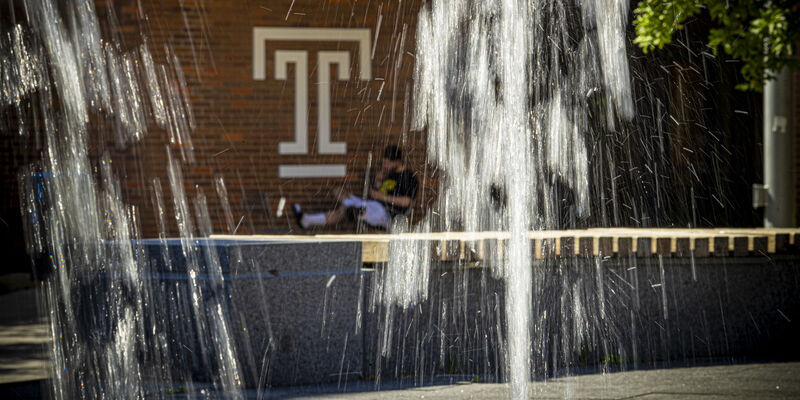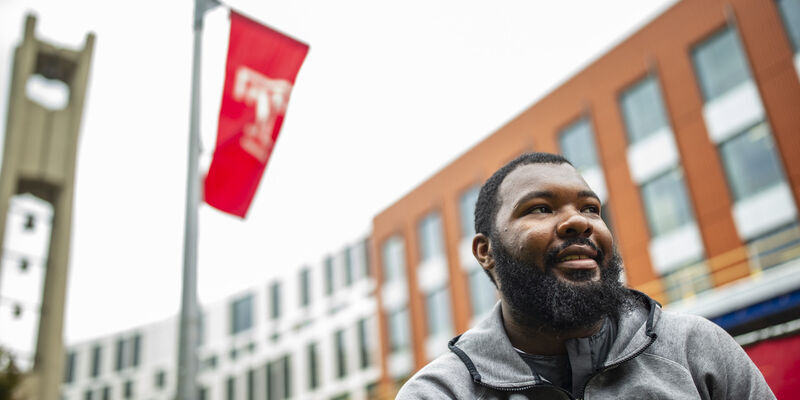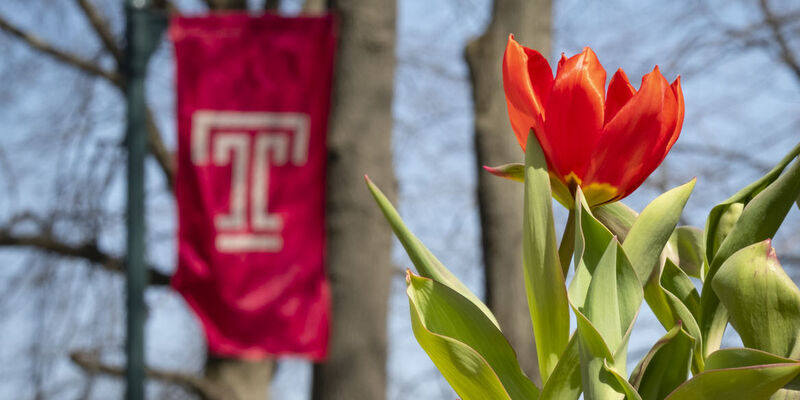What does House v. NCAA mean for Temple Athletics?
The historic antitrust settlement is ushering in a new era for college athletics. Temple Athletics Director Arthur Johnson explains how the recent ruling will impact Owl sports.

On June 6, 2025, a California District judge approved the NCAA’s landmark House v. NCAA antitrust settlement.
As a result, NCAA Division I schools that opt in to the settlement will now, for the first time, be permitted to directly pay student-athletes for name, image and likeness (NIL). The ruling removes caps on scholarship amounts and allows universities to operate under new recruiting and roster rules.
Temple Now sat down with Vice President and Debbie and Stanley Lefkowitz ’65 Director of Athletics Arthur Johnson to find out what the ruling means for Temple.
Temple Now: There has been a lot of discussion about the House settlement over the past several months—what have Temple University and the Athletics Department been doing to best position Temple programs for success?
Arthur Johnson: Here at Temple, we have been anticipating the outcome of the ruling and collaborating with key university personnel and units on a plan to move forward. We have been consulting with our legal teams and engaging with compliance associates and university stakeholders to make sure we look at the situation from every angle. I am immensely grateful to my team in Athletics and to President Fry and members of the Temple administration for their support.
It takes total alignment from top to bottom to have the kind of success in athletics that we want at Temple, and that’s what we have.
TN: In February, it was announced that Temple was ‘opting in’ to the House settlement. Can you explain what that means for Temple Athletics?
AJ: Member schools of the Power conferences—the ACC, Big 10, Big 12, Pac 12 and SEC—had already agreed to a new athletics landscape and were automatically part of the settlement parameters. By opting in to the proposed settlement, the institutions and conferences that were not automatically part of the settlement get a chance to participate in the new model.
Opting in gives Temple the opportunity to retain and recruit student-athletes and provide NIL to student-athletes directly. While it also means we must conform to established roster limits, there will be no more caps on scholarships, and schools can now share revenue with student-athletes.
TN: You have been a member of the NCAA Division I Men’s Basketball Committee since 2023. Now that the ruling has been made, how will the new landscape of college athletics impact men’s basketball as a whole and Temple’s storied program, along with our women’s basketball program?
AJ: First, it’s been a tremendous honor and privilege to represent Temple and the American Conference on the NCAA Division I Men’s Basketball Committee. It’s also been a learning experience and a lot of work. I couldn’t do it without the support of my leadership team and the leadership of President Fry. I have to give a heartfelt thank you to everyone who has supported me, especially during the month of March.
The settlement puts pressure on the committee in terms of revenue. That’s because money from the NCAA men’s basketball tournament goes back to all divisions of the NCAA—all student-athletes benefit from the tournament. While the NCAA draws revenue from other events, March Madness captivates this country: 67 games in three weeks with over $1 billion going back to the member schools.
Going forward under the settlement, coaches are likely going to have to build a relatively new team every year. We are not against it; we are prepared for this. Many student-athletes enter the transfer portal because they want to see what their options are. All of our coaches, including [Women’s Head Basketball Coach] Diane [Richardson] and [Men’s Head Basketball Coach] Adam [Fisher], will have to monitor the portal for potential players.
In anticipation of this new environment, we established the Competitive Excellence Funds for each sport. These funds expand the pool of available benefits, creating a more competitive environment for Temple's student-athletes.
TN: K.C. Keeler was hired as the new head football coach last fall, and I know there is excitement building around the program. How has he been adjusting to this new era of intercollegiate athletics?
AJ: Coach Keeler has been a head coach for over 30 years, and in that time he has achieved a lot of success, which is a testament to his ability to adjust. Over the years, rules within the sport have changed, access to athletes has changed, etc. As a former athlete, and national championship-winning head coach at Delaware and Sam Houston, he has had to handle a multitude of changes. I’m not concerned about him when it comes to change.
TN: While those three sports are highly visible, the remaining varsity sports at the university are also important. Will there be any changes to the way the Athletics Department supports those student-athletes?
AJ: We want to win in every sport we sponsor. It’s important to the student-athletes and coaches, and it’s important to me.
For our varsity sports, we are offering the same number of scholarships, and we are committed to delivering the same experience now that we were delivering before the settlement. Our student-athletes are great brand enhancers and incredible young people who are reaching new heights in the classroom. They recorded a 3.46 average GPA last spring semester, which makes 27 consecutive semesters of 3.0 or higher.
It speaks to the efforts of our team at the Resnick Academic Support Center and the coaches who recruit and mentor these young people every day. But I give most of the credit to the student-athletes, themselves, who put in the work.
The bottom line is that the House settlement ultimately benefits all our student-athletes when it comes to fundraising and the Competitive Excellence Funds.
TN: How has Temple been supporting student-athletes during this transition, and how will it continue to do so?
AJ: Student-athletes in every sport have been invited to participate in town hall discussions to ensure they have the opportunity to learn about the coming changes and ask questions. The New NIL platform, NIL Go, is a system in which student-athletes must self-report outside deals over $600, and then an external group will evaluate those deals to determine if the range is fair. We will continue to educate our student-athletes so that they are aware of the rules and expectations.
TN: Overall, what is your outlook on the future for Temple Athletics?
AJ: Our goal is to reach postseason play, not just in men and women’s basketball and football, but in every sport. The best way to get into the national tournaments and secure postseason bids is to win our conference, and that’s what we intend to do.
It’s important for everyone to remember that Temple is not alone in facing this transition. Universities across the country are confronting the same changes—even members of the Power schools. There may be growing pains, but overall, these changes will level the playing field across the sports. I’m excited about the future.
Support Temple student-athletes and the Temple Athletics Competitive Excellence Fund.
— Kim Fischer


